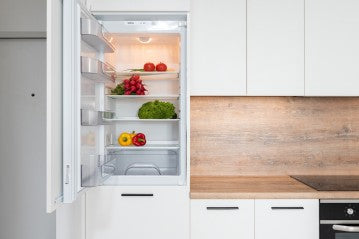
With the increasing popularity of solar energy, many customers are looking for innovative ways to harness this renewable resource and reduce their carbon footprint. One such question that frequently arises is whether it's possible to run a mini fridge off a solar inverter. In this article, we will delve into the details of what an inverter is, the power consumption of mini fridges, and the advantages and disadvantages of utilizing an inverter for this purpose.
What is an Inverter?
Before we dive into the specifics of running a mini fridge off an inverter, let's understand what an inverter actually is. In the realm of solar energy, an inverter plays a vital role in converting the direct current (DC) electricity generated by solar panels into alternating current (AC) electricity, which is suitable for powering household appliances. This conversion is crucial because most of our electronic devices, including mini fridges, are designed to operate on AC power.
Power Consumption of Mini Fridges
Before determining whether a solar inverter can efficiently run a mini fridge, it's essential to consider the power consumption of the appliance. Mini fridges typically come in various sizes, and their power requirements can vary significantly based on factors like size, efficiency, and additional features like a freezer compartment or energy-saving mode.
On average, a standard mini fridge may consume around 100 to 800 watts of power per day. Larger models or those with additional features may lean toward the higher end of this range. The power consumption can be found on the manufacturer's label or in the product manual.
Advantages of Running a Mini Fridge Off an Inverter
1. Eco-friendly Cooling: Utilizing a solar inverter to power a mini fridge offers the advantage of eco-friendly cooling. By tapping into solar energy, you can significantly reduce your dependence on fossil fuels and lower your carbon emissions, contributing to a greener planet.
2. Energy Independence: Solar energy provides you with energy independence. You become less reliant on traditional power grids, which are often powered by non-renewable sources. This independence is particularly beneficial in areas prone to power outages or remote locations where connecting to the grid might be challenging or costly.
3. Cost Savings: Over time, investing in a solar inverter to run a mini fridge can lead to considerable cost savings on your energy bills. While the upfront investment may seem significant, the long-term benefits of harnessing free solar energy can offset these costs in the future.
Disadvantages of Running a Mini Fridge Off an Inverter
1. Initial Investment: Installing a solar energy system with a solar inverter can involve a substantial initial investment. While the costs of solar panels and inverters have decreased in recent years, it's essential to consider your budget and evaluate the long-term benefits.
2. Limited Capacity: The capacity of the inverter plays a vital role in determining what appliances it can power. If your solar inverter's wattage is not sufficient to handle the startup surge and continuous power consumption of the mini fridge, it may not work efficiently, leading to potential damage to the inverter or inconsistent fridge performance.
Will a 3000 Watt Inverter Run a Refrigerator?
The capability of running a mini fridge on a 3000-watt inverter largely depends on the specific power requirements of your refrigerator. A 3000-watt inverter can handle medium-sized mini fridges with power consumption up to 800 watts efficiently. However, it's essential to check the refrigerator's power rating before making any assumptions.
Before connecting your mini fridge to a 3000-watt solar inverter, consider these factors:
1. Startup Surge: When a refrigerator starts, it requires a higher surge of power to kickstart the compressor. This initial surge can be significantly higher than the fridge's regular running wattage. Ensure that the inverter can handle these temporary spikes to avoid any damage.
2. Additional Loads: Remember that the inverter might be powering other appliances or devices simultaneously. Consider the combined power requirements of all connected devices and make sure the inverter's capacity can handle the total load.
Conclusion
In conclusion, running a mini fridge off a solar inverter can be a feasible and eco-friendly solution if done correctly. The advantages of eco-friendly cooling, energy independence, and potential cost savings make it an attractive option for environmentally conscious consumers.
However, it's essential to consider the power consumption of your mini fridge, the capacity of the solar inverter, and any additional loads to ensure efficient and safe operation. Consulting with a reputable solar energy provider can help you assess your specific needs and design a solar energy system tailored to power your mini fridge and other household appliances effectively.

0 comments